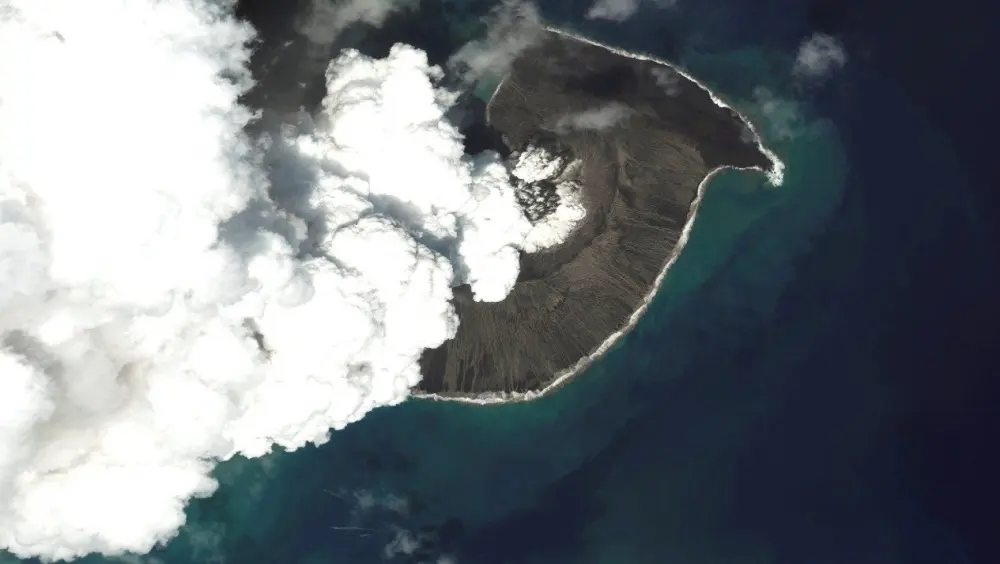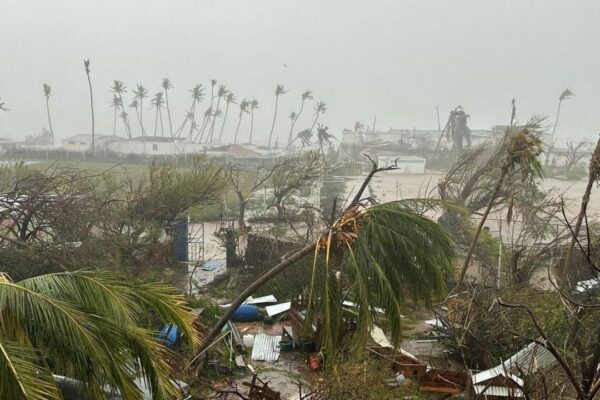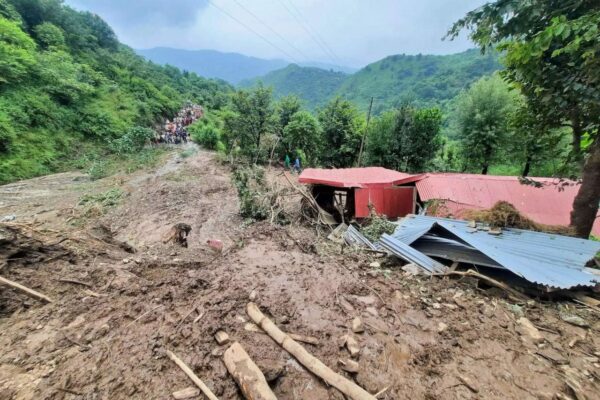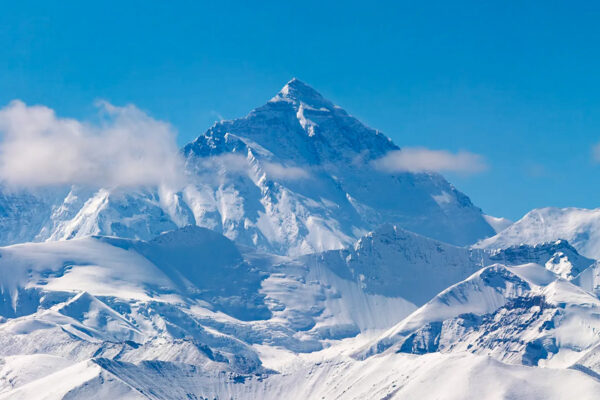Authorities Assess Damage After Tonga Volcano Eruption and Tsunami Cuts off Communications
Experts have labelled it the most energetic volcanic explosion of the 21st century; it has sent ripples as far as Australia while overseas Tongans wait anxiously for news after the eruption
On January 15, an undersea volcano about 40 miles north of Tonga’s main island suddenly erupted. It spewed ash, gas and steam over 12 miles into the air, creating a cloud of sulfur dioxide over the region. The eruption sent particles drifting across the island and disabled a crucial submarine internet cable, while the subsequent tsunami cut off the South Pacific nation from the world.
The underwater volcano erupted on the night of January 15, triggering tsunami alerts across the Pacific. Tonga is a Polynesian kingdom of around 170 islands, of which 36 are inhabited. The country has a population of about 105,000 people. After two days of the eruption, a distress signal has been detected in an isolated, low-lying group of Tongan islands.
Most of the external communications remain down and families overseas impatiently wait for the news. There have been two reported deaths, including a British woman who went missing in the Tsunami and her body was found on January 17.
Reportedly, the UN has detected the distress signal, prompting specific concern for the people of Fonoi and Mango. As per the Tonga government, there are 36 people living on Mango and 69 on Fonoi. The concern remains high as most communication between Tonga and the outside world is still cut off after the main communication cable of the nation was broken during the volcanic eruption.
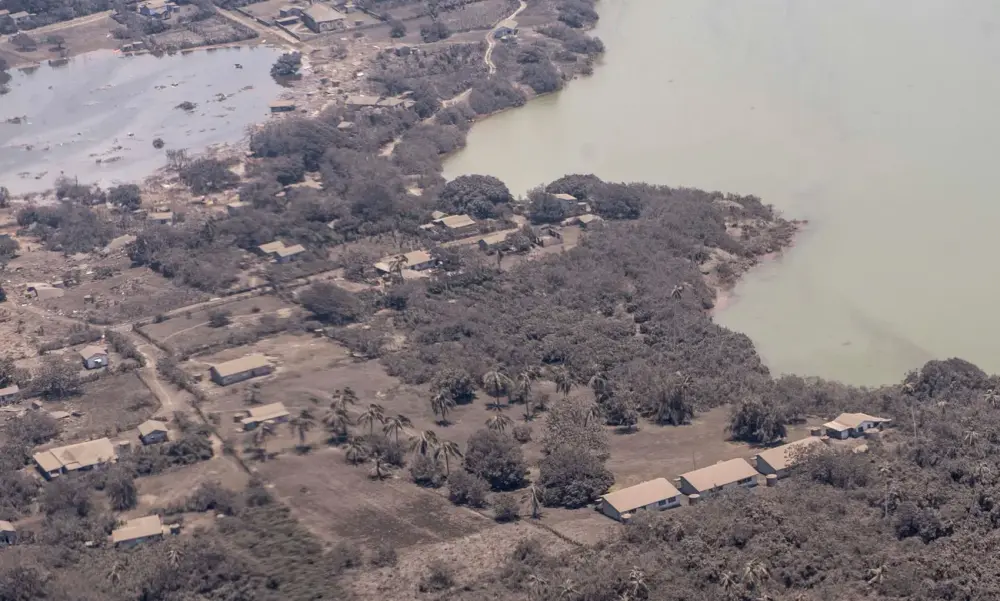
Homes and vegetations covered in volcanic ash in the island of Nomuka of Tonga | Image: New Zealand Defense Force/AFP
A spokesperson for Southern Cross Cable, which operated other undersea cable networks across the region, said that testing by Fintel and Tonga Cable “seems to confirm a likely cable break around 37 km offshore from Tonga.” A specialist cable repair ship is being dispatched from Papua New Guinea, but the offshore nature of the break means it is more difficult and time-consuming to repair.
The UN analysis of satellite imagery from the island of Nomuku found that almost all visible structures were blanketed with ash and about 40 percent of visible structures were damaged. Reportedly, boulders and boats had washed ashore on Tongatapu, Tonga’s largest island, about 65 km south of the volcano, while the debris blocks runway, restricting New Zealand air relief from landing.
Here are some of the most harrowing images and videos from the volcanic eruption and its aftermath.
Stay safe everyone 🇹🇴 pic.twitter.com/OhrrxJmXAW
— Dr Faka’iloatonga Taumoefolau (@sakakimoana) January 15, 2022
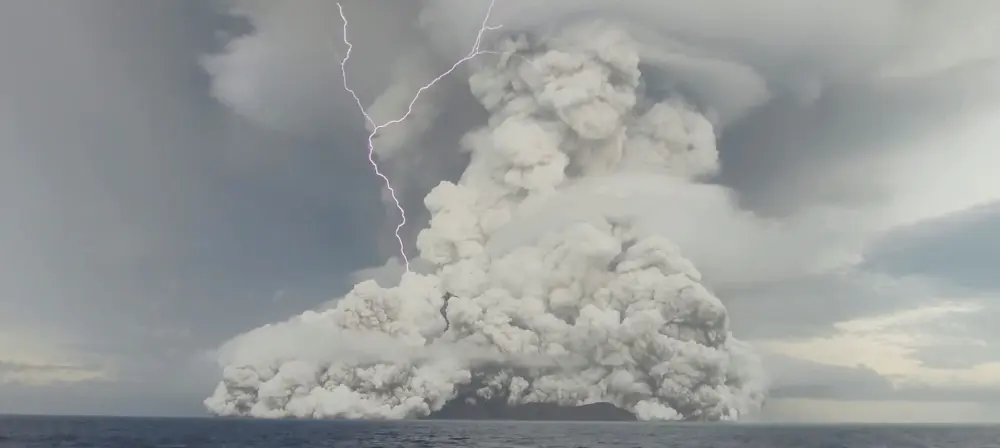
Image: Tonga Geological Services/Reuters
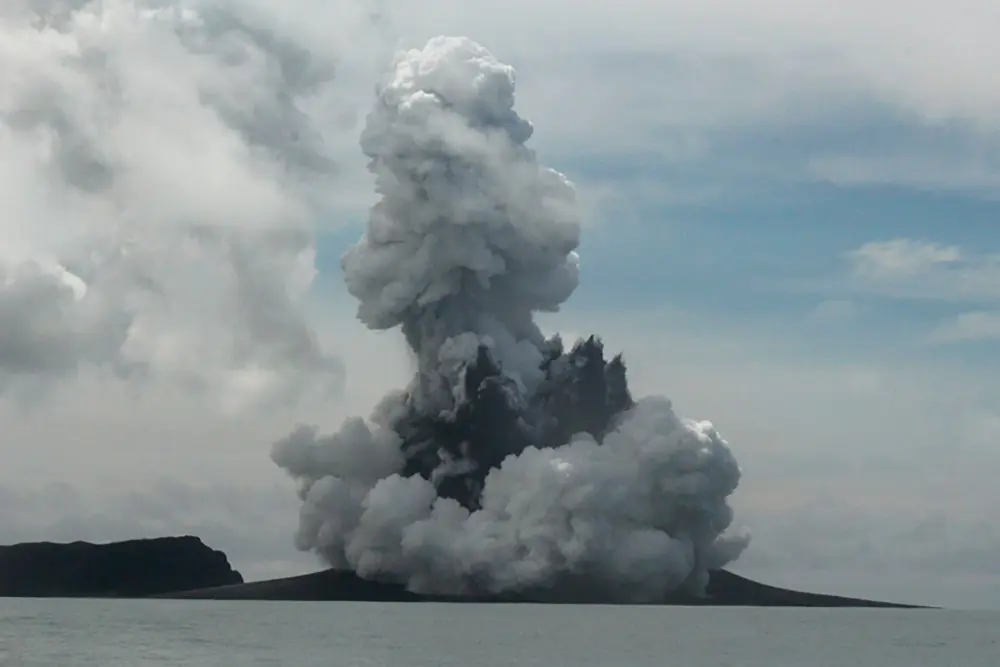
Image: New Zealand High Commission/ZUMA Press Wire Service
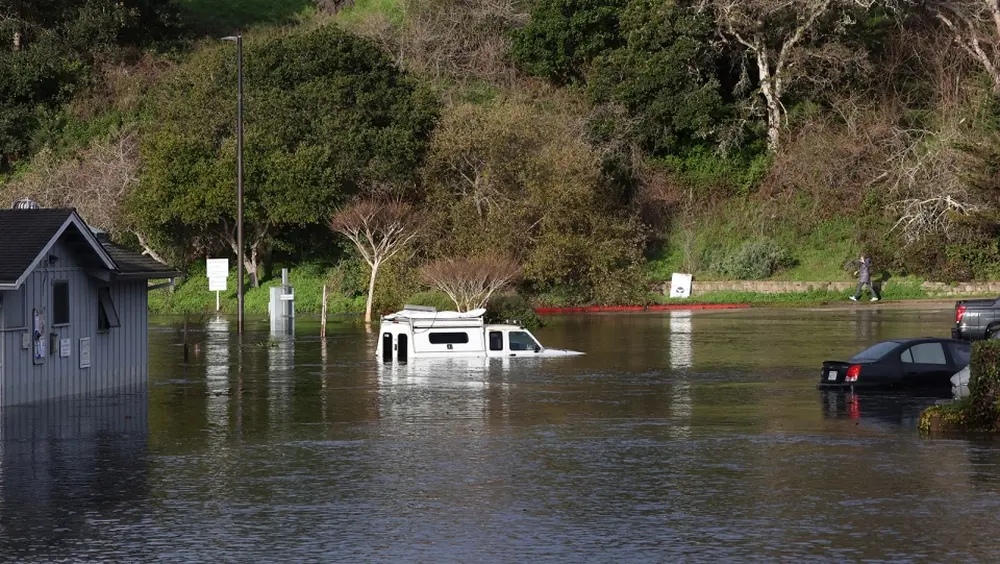
Image: Shmuel Thaler/The Santa Cruz Sentinel/AP
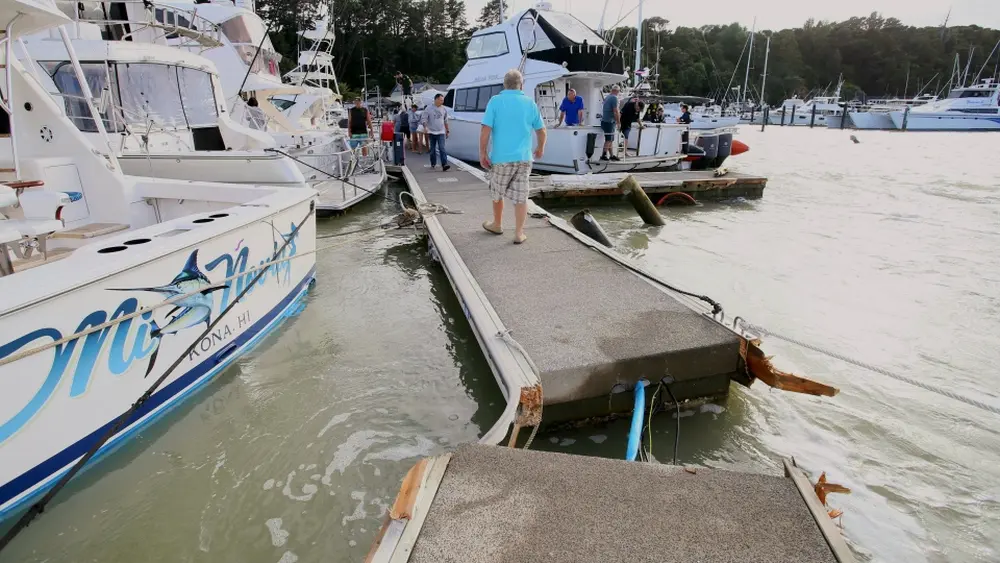
Image: Tanya White/AP
Via: The Guardian
